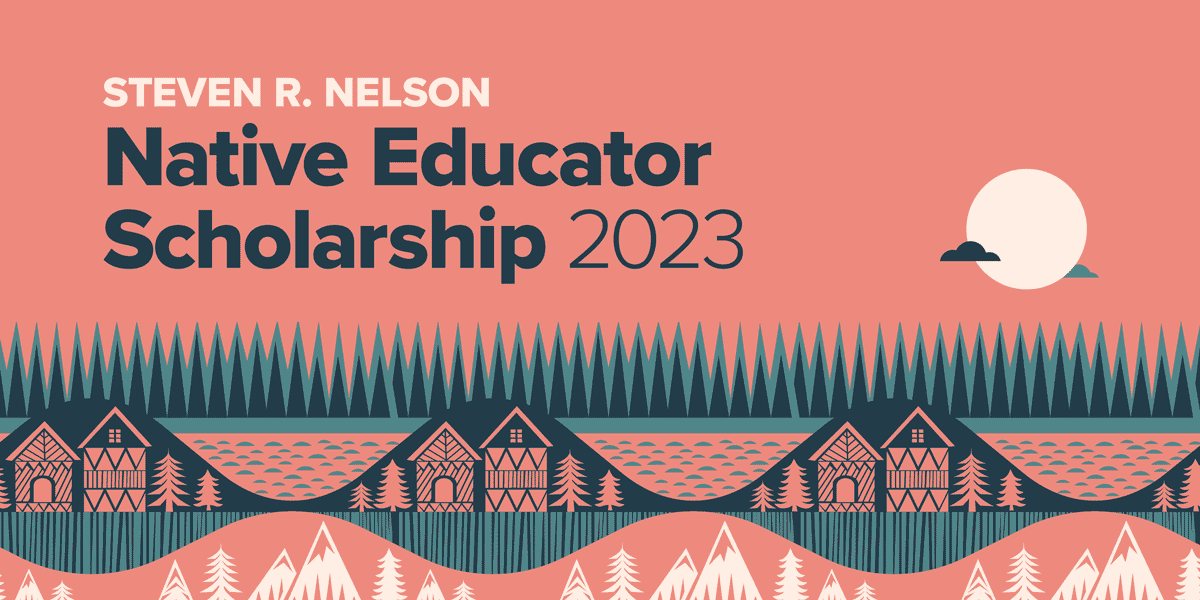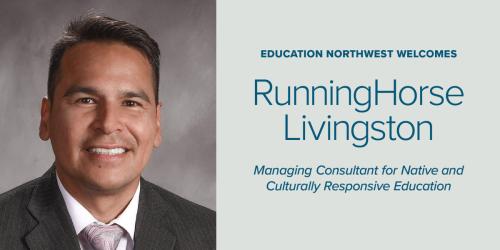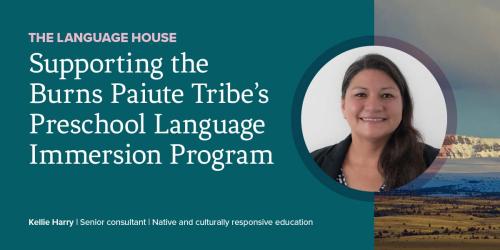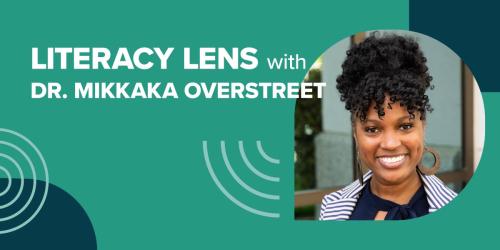The Next Generation of Native Educators: Celebrating the 2023 Nelson Scholars

Each year, Education Northwest awards the Nelson Scholarship to Native American students in the Northwest who are pursuing a master’s degree in education, with a goal to increase Native representation in the field.
Investing in Native education and Native education leaders is critical for building a more equitable and just education system. Education Northwest is honored to uplift Native educators in our home region via this annual scholarship.
In 2023, we awarded the Nelson Scholarship to five recipients. This year’s Nelson Scholars include:
- Micah Bisbee (University of Idaho)
- Jacklyn Brendible (University of Washington)
- Maya Esquivido (University of Washington Tacoma)
- Tleena Ives (University of Washington Tacoma)
- Shani Johnson (Portland State University)
Read more about this year’s Nelson Scholars below. Congratulations to all five recipients!
The 2024 Nelson Scholarship application window will be open from November 30, 2023, to March 31, 2024. Visit our scholarship page to learn more.
Jacklyn Brendible (Tsimshian)
Master of Agricultural Science — University of Washington
As an agricultural educator pursuing an advanced degree, Jacklyn Brendible hopes to advance her knowledge about the content she is most passionate about. For her master’s degree, Jacklyn is creating traditional ecological knowledge (TEK) lesson plans focused on plant science. She hopes to help people understand the negative impacts of pollution on our ecosystem, recognize the harm we cause from different industries, and work toward bettering the interactions we have with our plants and animals.
I believe Native education can and should be taught in every content area.
—Jacklyn Brendible
“I believe Native education can and should be taught in every content area,” says Jacklyn. It is important to me that students who walk into my classroom know our culture will be spoken about and taught in all of my units.”
When asked to share advice with the next generation, Jacklyn says, “Work toward a career that you are proud of and share that passion with family, friends, and community members.”
Maya Esquivido (Nor Rel Muk Wintu Nation)
Doctor of Education Leadership, Indigenous-Centered Curriculum & Hiring Practices — University of Washington Tacoma
When Maya Esquivido encountered her first Native educator, she was already in college. That experience changed the trajectory of education for her.
“The lack of Native representation during my early academic journey reinforced the idea that school was a space not created for me,” says Maya. “I was never reflected in any institutional spaces or curriculum, and that violence still permeates our institutions today, taking the shape of invisibility: the silence of our voices in the curriculum and the absence of our bodies in the classroom and leadership roles.”
Our people are strong and resilient—and so are you. We are fighting for you every day. Be the change you demand.
—Maya Esquivido
Today, Maya is passionate about increasing Native American representation in all aspects of education for Native youth. In fact, Indigenous-centered curriculum and hiring practices are the core focus of her doctoral studies in education leadership at the University of Washington Tacoma. Maya explains, “Increasing the number of Native faculty and staff members and ensuring the inclusion of Indigenous knowledges across all disciplines is my heart work.”
Maya offers these words of encouragement directly to Native youth: “Our people are strong and resilient—and so are you. We are fighting for you every day. Be the change you demand.”
Tleena Ives (Port Gamble S’Klallam Tribe)
Doctor of Education Leadership, P–12 Education — University of Washington Tacoma
In her work as director of Tribal relations for the Washington State Department of Children, Youth, and Families, Tleena Ives feels blessed to work with all Tribes and recognized American Indian organizations in the state, expanding service delivery related to health, child welfare, and education.
I want to support the ways that education can be healing for our people, which includes decolonizing the curriculum and centering the voices of Indigenous people.
—Tleena Ives
Tleena says, “I am most proud of the work we've done to support Tribal Early Learning Language Summits where we get to learn from each other some of the best practices in language immersion and revitalization efforts.”
Today, Tleena is expanding her knowledge of Native education by participating in an all-Indigenous cohort of the University of Washington Tacoma’s doctoral program in educational leadership: all Indigenous curriculum, all Indigenous students, and all Indigenous faculty members.
“I want to contribute to academic research and publications about my Tribe, including the experiences from the Port Gamble Indian Day School,” says Tleena. “Ultimately, I want to support the ways that education can be healing for our people, which includes decolonizing the curriculum and centering the voices of Indigenous people.”
All this work stems from Tleena’s passion for all things related to Native culture. Growing up in a four-generation home, Tleena learned many things alongside her grandmother and great-grandmother, including Klallam language, traditional food, and medicine harvesting and preparation. Through her studies and her work, she hopes to ensure future Native generations can also participate in an environment that supports their identity, creates belonging, and uplifts traditional teachings.
Shani Johnson (Hoopa Valley Tribe)
Doctor of Educational Leadership — Portland State University
Shani Johnson is a Native American doctorate student whose problem of practice is low graduation rates among Native American students. She notes that on average, Native students experience the lowest graduation rates, despite being only 2 percent of the overall population.
If I could deliver one message to the next generation, it would be to listen to the wisdom of their elders.
—Shani Johnson
“As a Native American, I have empathy for what many Native American youth face, including poverty, alcohol, diabetes, and suicide,” said Shani. “One pathway out of poverty is education. Every child deserves to graduate from high school and go on to college if they wish. This is why I am examining Native graduation rates from a holistic standpoint and a frame of resiliency.”
Shani knows that teachings of tradition—or Indigenous ways of knowing—are key to addressing the problem of low graduation rates and supporting Native students. For that reason, she has grounded her research in the teachings and perspectives of three Native American elders with long careers in education.
“If I could deliver one message to the next generation, it would be to listen to the wisdom of their elders,” said Shani. “Elders are very important members of our Tribal community. Elders help bridge the seven generations. If Native youth get to know and hear the stories of Native elders, they are much more likely to pass these tales on to the following generation.”


